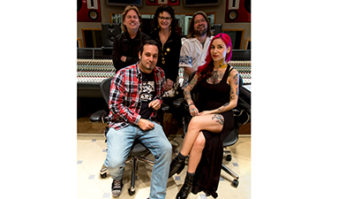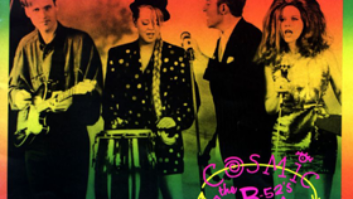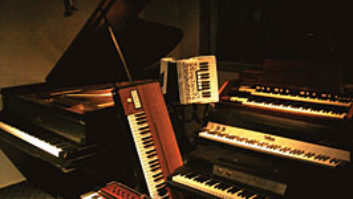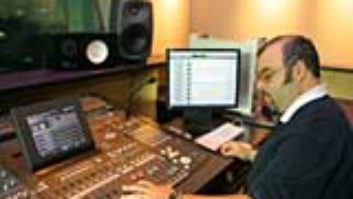Medeski, Martin & Wood have stood out from the crowd since their debut release, Notes From the Underground, in 1992. The New York City-based jazz/funk jam band built a fervent fan base around their eclectic collection of album releases and a torrid touring cycle. Mainstream acceptance came with the 1998 Blue Note Records release Combustication. The band took its grassroots distribution online when they released the live album Electric Tonic exclusively through their Website, www.mmw.net; their 2000 Blue Note release The Dropper was released online as a digital download through Liquid Audio simultaneously with its physical release.
Billy Martin, the band’s drummer, took a breather from a meeting where the trio was choosing the bonus cut for the Japanese release of Uninvisible, their newest album, due out in April, to talk about online music distribution.
When did the band first get involved in the Internet?
A fan of ours started creating a Website for us, I think that was seven years ago. We weren’t thinking about the Internet very much back then. As our whole operation as a business got together, our manager [Liz Penta] got us into thinking about designing a Website that was official [www.mmw.net].
You guys have also released a couple of albums via the Internet.
That was exciting. I’m into that kind of special offer for the fans and exclusivity in the way of not relying on some crazy marketing, distribution situation. We really wanted to try it, and I think this Electric Tonic thing was really an exciting project, and it’s working out.
Was it a little odd to finally get on the Internet and realize how many people were out there checking out the band?
It’s unusual to look through a porthole and see your fans in a different dimension. There’s nothing odd about it, it’s great. We’re able to tap into a forum, another dimension, and communicate.
As a musician, were you concerned about fidelity online?
Yeah, I don’t think it’s fair to sell someone something that’s below the standard of what we released. If I don’t hear the difference with my own ears — and I think I have good ears — then I’m cool with it. There are people who argue about how it’s processed and compressed and all that. I’ve taken stuff off of EMusic or Napster and figured out how I could burn a CD. That was the way I could tell.
Did you try out any other sort of players and encoders?
A friend of mine is associated with [Liquid Audio], and that’s how it all started. I ended up liking the sound quality, but I’m not into all these different players or different companies that are trying to make it this or that. I really think there should be just one system. You can make it look like a different player, but it should be similar technology. I think people who’re trying to create their own separate player are just trying to make bucks.
So, are you pro-Napster?
Personally, I feel like it’s a good thing if you could get a sample of something. But if you end up downloading the whole record, I don’t think it’s fair. Ultimately, for me, what I like about it is listening to music I’ve never heard of before and get a vibe on a composer or a band. I think if you really want something, you should buy it. What I’m not into is being able to download something that is of perfect quality if it discourages you from contributing to the artist’s well-being. I don’t think that’s fair; there should be some kind of royalty. I’m okay with people sharing music now and then on a casual level, it’s cool. So, I’m not sure when it comes down to it. Get back to me in a year, and I think it’s going to be interesting.
David John Farinella is a freelance writer in the San Francisco Bay Area.






